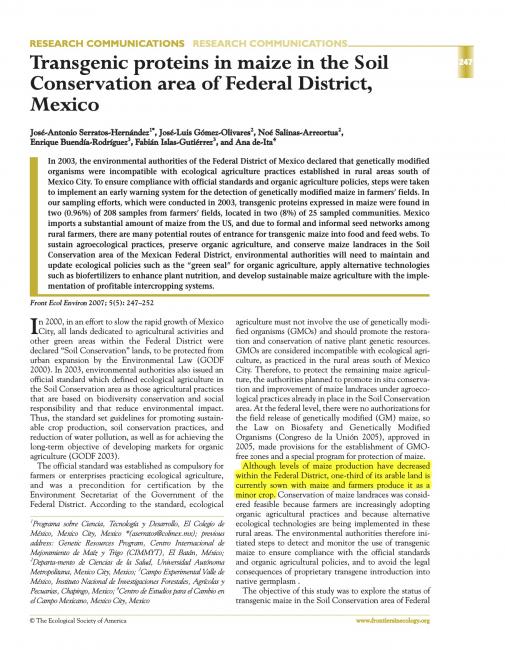
Frontiers in Ecology and the Enviroment
In 2003, the environmental authorities of the Federal District of Mexico declared that genetically modified organisms were incompatible with ecological agriculture practices established in rural areas south of Mexico City. To ensure compliance with official standards and organic agriculture policies, steps were taken to implement an early warning system for the detection of genetically modified maize in farmers’ fields. In our sampling efforts, which were conducted in 2003, transgenic proteins expressed in maize were found in two (0.96%) of 208 samples from farmers’ fields, located in two (8%) of 25 sampled communities. Mexico imports a substantial amount of maize from the US, and due to formal and informal seed networks among rural farmers, there are many potential routes of entrance for transgenic maize into food and feed webs. To sustain agroecological practices, preserve organic agriculture, and conserve maize landraces in the Soil Conservation area of the Mexican Federal District, environmental authorities will need to maintain and update ecological policies such as the “green seal” for organic agriculture, apply alternative technologies such as biofertilizers to enhance plant nutrition, and develop sustainable maize agriculture with the imple- mentation of profitable intercropping systems.



